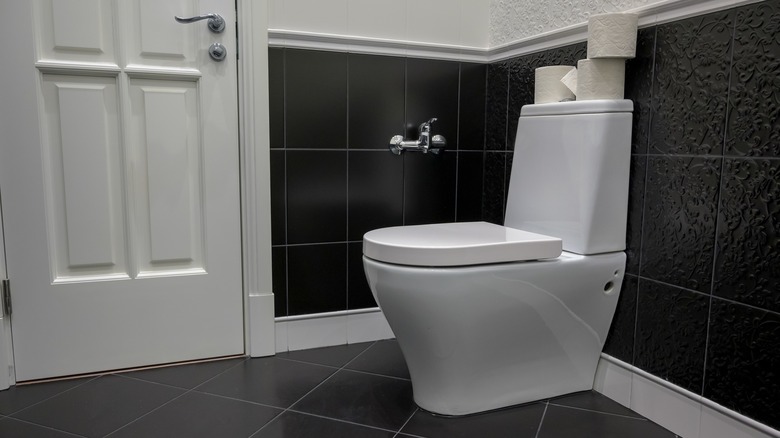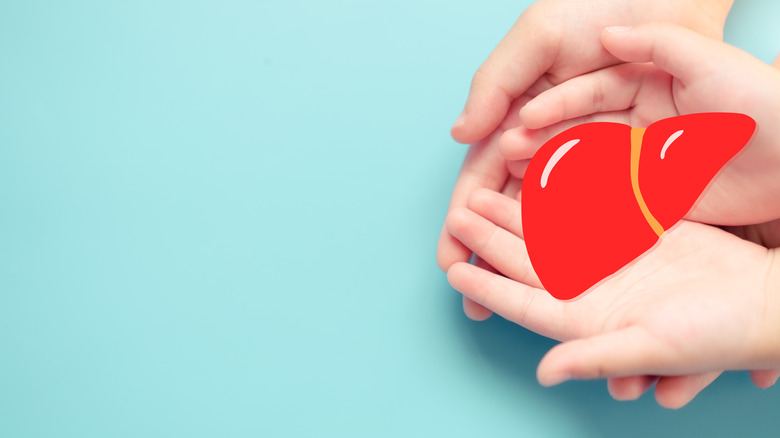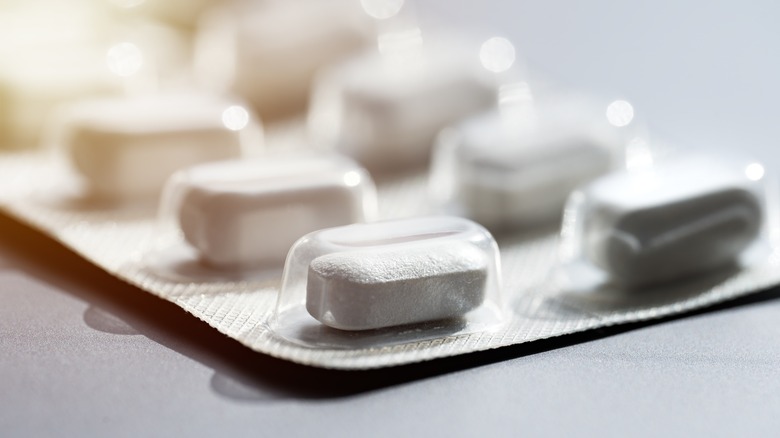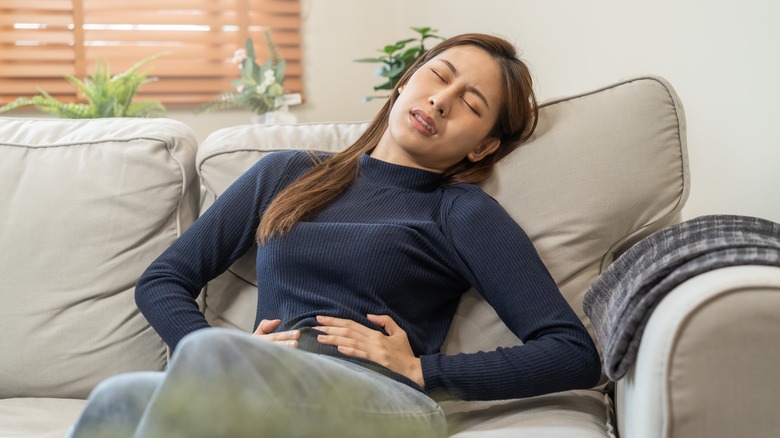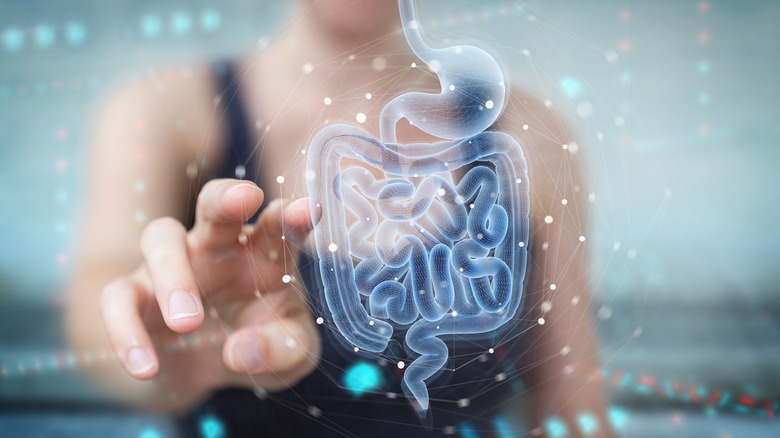What Causes Your Poop To Turn Green?
Whether you're going to the bathroom three times a day or three times a week, your bowel movements can tell you a lot about your health. The size, shape, consistency, and, yes, color can explain a lot, including if you're constipated or the amount of fiber in your diet (per Health Partners). The color of your poop can also be a great indicator of an underlying medical condition or your diet.
The normal color of excrement is, of course, brown. This is caused by a mix of dead red blood cells and bacterial waste from your bowels, according to Healthline. Yes, even bacteria produce waste because they help absorb nutrients from your meals. But if you check your bowel movements when you use the toilet and see that your poop is green, you may begin to worry — especially if you haven't seen odd colors before. While it could be a sign of an infection, there are more likely reasons for the green color of your poop.
It could simply be a change in your diet
Excrement is waste primarily created from the food that humans ingest. So it makes sense that what we eat determines what our excrement looks like. If you see green stool in your toilet, it's most likely due to a change in your diet, according to Healthline. Green leafy vegetables, green food coloring, and even iron supplements can cause your poop to turn green (via Mayo Clinic).
This is caused by chlorophyll, a chemical that lets plants absorb energy from the sun, according to WebMD. When a lot of chlorophyll is ingested, your poop can turn green. If your stool has only recently changed color, think back to your diet from the last few days. Did you eat more green vegetables than normal? Did you make a lot of green recipes in honor of St. Patrick's Day? If so, that's the most likely explanation for the change in color.
Pigment from bile may play a role
Made in the liver and then stored in the gallbladder, bile is a fluid that has a naturally green-yellow color. Its primary purpose is to help your body break down fat in your diet, according to Healthline. This important function helps more fat to be absorbed into your small intestine. But bile could become blocked as it builds up in the liver for various reasons, causing yellowing of the skin and eventually, biliary cancer (via Mount Sinai).
Just like the food you eat, bile must also be broken down and excreted in the form of waste, usually traveling down the small intestine. However, if you have a digestive issue, the bile won't be broken down as easily. This often results in poop that turns green, because of green-tinted bile salts (per Healthline). Try talking to a doctor about your digestive concerns or ingesting a variety of healthy fats when you eat.
Certain antibiotics can make your poop change color
As the name suggests, antibiotics are prescribed to treat bacterial infections. Because they work, according to MedlinePlus, by destroying bacteria or creating an environment that's difficult for bacteria to grow in, sometimes they destroys good bacteria as well. Your gut contains around 100 trillion bacteria that play a role in many health conditions, from heart disease to cancer (via Harvard Health Publishing).
When you're prescribed an antibiotic, especially a strong one, the antibiotic can kill a good amount of the bacteria in your gut. Since your poop is partially made up of bacterial waster, this reduces the amount of bacteria present to make your poop turn brown (per Healthline). You can eat probiotics, like kombucha and certain yogurts, to help bring back balance into your gut. Probiotics are live bacteria and yeast that are good for your digestive system, according to WebMD.
Infections can cause a change of color
For a long time, poop turning green has been used as a sign of a potential illness (via Cleveland Clinic). That's because some viruses and bacteria can turn your stool green. This includes conditions like salmonella (the main culprit of food poisoning), norovirus, and E. coli. These infections cause your gut to remove waste at a faster rate — which also causes a lot of gut bacteria to also be flushed. According to Healthline, the resulting effect is a green color.
However, it should be noted that, as previously shown, poop having a green color can be caused by a lot of things. If your waste changing color is the only symptom, then it's not cause for alarm. If you don't have diarrhea, aren't vomiting, and otherwise feel perfectly fine, the green color is most likely caused by a different reason — such as a change in your diet — rather than an infection.
Do you have certain gastrointestinal conditions?
There are many gastrointestinal conditions that may play a role in turning poop green. For example, Crohn's disease can push bile through your intestines far too quickly, making your stool turn green, according to Healthline. Crohn's disease is an inflammatory condition that causes swelling of your digestive tract (via Mayo Clinic).
Celiac disease is another gastrointestinal condition that may cause a change of color in your poop. It is essentially a gluten intolerance. When someone with celiac disease is exposed to gluten, it causes inflammation in the gut. Up to 2.5 million people in the United States have the condition without knowing it, according to Medical News Today. It can cause a variety of problems including gas, bloating, and diarrhea — which can lead to a green color in your poop. If you have abdominal pain, bloating, gas, or other digestive issues when eating certain foods, talk to your doctor about potential gastrointestinal conditions.

